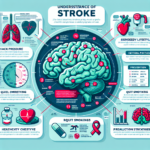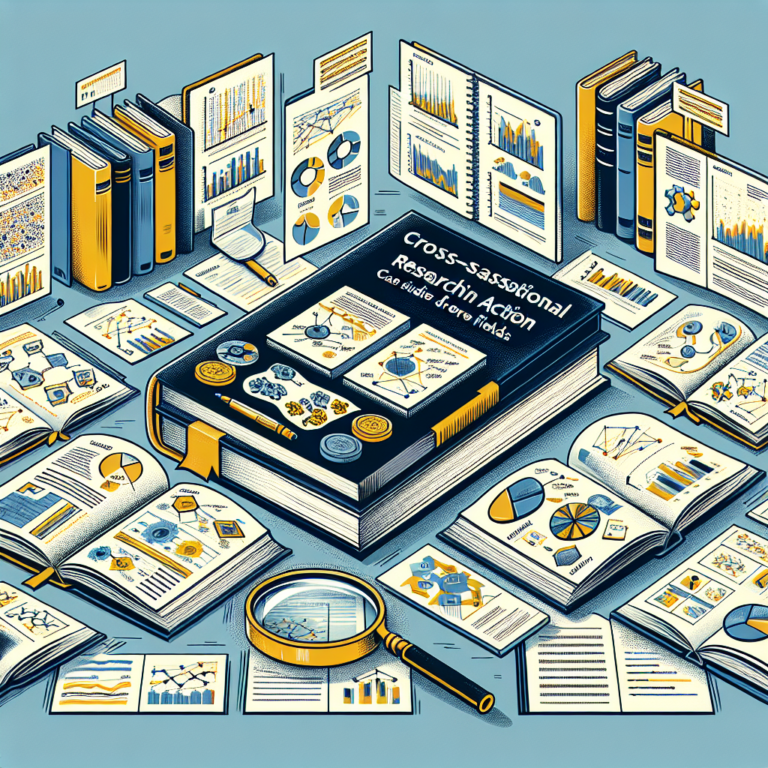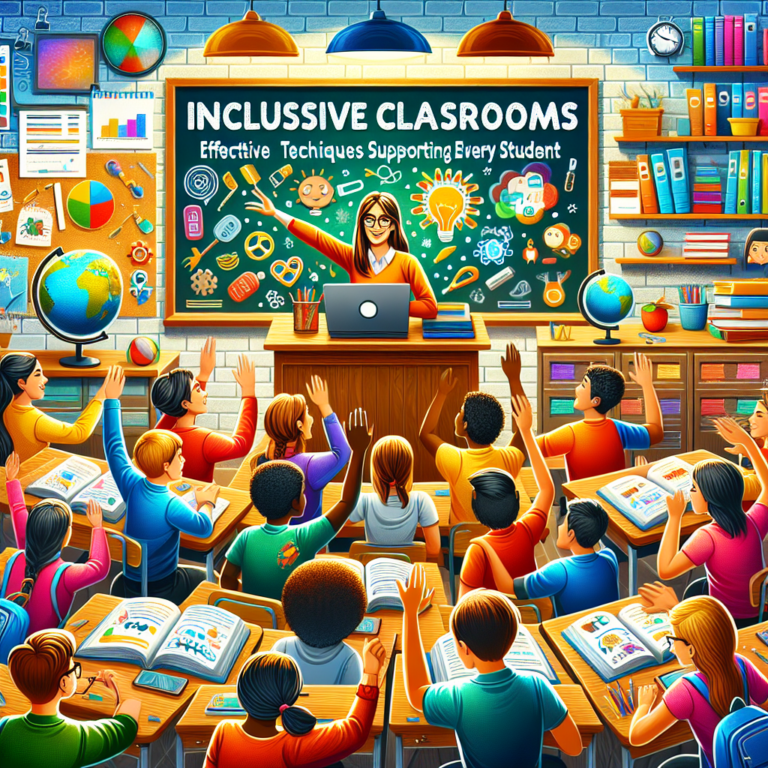
Introduction
In an era that champions innovation, few advancements have proven to be as transformative as artificial intelligence (AI). As we delve deeper into understanding human behavior, emotions, and cognition, the integration of AI in psychometrics is proving to be a revolutionary force. The intersection of AI and psychometrics: a game changer in psychological evaluations is altering traditional paradigms, making assessments more accurate, efficient, and insightful. This article will explore how this powerful duo is reshaping the landscape of psychological evaluations, providing unique insights and case studies, and discussing the implications for practitioners and individuals alike.
Understanding Psychometrics
What is Psychometrics?
Psychometrics is the field concerned with the theory and technique of psychological measurement. It encompasses the design, administration, and interpretation of quantitative tests that measure psychological constructs such as intelligence, personality traits, and aptitude. Traditional psychometric assessments have relied heavily on standardized tests, often requiring extensive data collection and skilled interpretation.
The Need for Innovation
The challenge with traditional psychometric assessments lies in their inherent limitations: they can be time-consuming, expensive, and occasionally biased. In an age where speed and precision are paramount, these drawbacks make a compelling case for the infusion of technology. The intersection of AI and psychometrics promises to bridge these gaps, offering a more dynamic and accurate approach to psychological evaluations.
The Role of AI in Psychometrics
Enhancing Data Analysis
AI excels in analyzing vast amounts of data quickly and accurately. When applied to psychometrics, this capability allows for deeper insights into psychological assessments. Instead of traditional methods that might involve manual scoring and subjective interpretation, AI algorithms can process data in real time, offering immediate feedback and richer contextual understanding.
Case Study: AI-Powered Assessments in Corporate Settings
Consider a multinational corporation that implemented AI-driven psychometric assessments for their hiring process. Traditional personality tests often resulted in high attrition rates, as they failed to predict job performance accurately. By integrating an AI platform, the company could analyze patterns from previous employee success and failure, tailoring assessments to reflect the skills and traits most predictive of success in specific roles. This resulted in a 30% reduction in turnover within the first year.
Personalization of Assessments
With AI, psychometric evaluations can be personalized, adapting in real-time based on a respondent’s answers. This is a significant improvement over static assessments that treat all respondents the same way.
Example: Adaptive Testing
Adaptive testing is an application of AI where the system adjusts the difficulty of questions based on previous responses. For instance, in a career aptitude test, if a respondent excels at questions related to logical reasoning, the AI can present more complex tasks that further hone in on specific cognitive strengths. This increases both engagement and accuracy.
Reducing Bias
One of the greatest challenges facing traditional assessments is the potential for bias—cultural, gender-based, or socioeconomic. AI has the potential to mitigate these biases by generating algorithms that are rigorously tested for equity.
Case Study: Language and Cultural Sensitivity
In one study, researchers tested an AI psychometric tool designed to minimize cultural bias by utilizing diverse training datasets. The findings showed that assessments that leveraged AI reduced biases related to ethnicity and language, leading to fairer evaluation outcomes in educational settings. Not only did this foster inclusivity, but it also improved educational placement strategies.
Ethical Considerations
The Importance of Responsible AI
While the intersection of AI and psychometrics presents undeniable advantages, it also raises ethical concerns. Data privacy, consent, and representativeness must be prioritized to preserve the integrity of psychological evaluations.
Transparency and Accountability
Users of AI must be aware of how assessments are generated and the factors influencing results. Ensuring transparency in AI algorithms can enhance trust among users and practitioners. For instance, if a company relies on AI for employee evaluations, it should communicate the algorithm used, the data analyzed, and the safeguards in place to protect confidentiality.
The Balance Between Human Insight and Machine Learning
While AI can enhance psychometric evaluations, the human element remains vital. Trained professionals should interpret results, as AI lacks the nuances of emotional intelligence and contextual understanding that only a human can provide.
Case Study: Human-AI Collaboration
In a clinical setting, a psychologist integrated AI-driven assessments into her practice. While the AI provided comprehensive reports on patients’ mental health, she utilized her expertise to interpret nuanced behaviors and life circumstances that the AI could not assess. This collaboration resulted in tailored treatments that improved patient outcomes.
The Future of Psychological Evaluations
Trends and Predictions
The intersection of AI and psychometrics: a game changer in psychological evaluations will continue shaping the future of mental health assessments in exciting ways. Here are some trends to watch:
Real-time Feedback: AI’s ability to provide instant analysis may lead to a shift away from annual evaluations to continuous assessments in workplaces and educational settings.
Gamification: By embedding assessments into games or interactive platforms, AI can enhance engagement, especially among younger populations.
- Integration with Wearable Technology: Future psychometric tools may utilize data from wearable devices (like heart rate or sleep patterns) combined with traditional psychological assessments to provide a holistic view of an individual’s psychological state.
Bridging the Gap Between AI and Human Understanding
While technology promises efficiency and accuracy, it is crucial to foster collaboration between AI and human professionals. Training programs should emphasize how to leverage AI tools while retaining the vital human elements of empathy and understanding that are foundational to psychological practice.
Conclusion
The intersection of AI and psychometrics is transforming psychological evaluations in profound ways. From enhancing data analysis to personalizing assessments and reducing bias, AI acts as a powerful ally in the quest for deeper understanding of human behavior. As we continue to explore this exciting frontier, it is essential to maintain ethical practices and leverage the human insight that remains integral to psychological assessments.
By embracing this fusion of technology and traditional psychological metrics, we can look forward to a future where psychological evaluations are more effective, equitable, and insightful than ever before. The promise of the intersection of AI and psychometrics: a game changer in psychological evaluations inspires not just professionals in the field but also individuals seeking to understand themselves better.
FAQs
1. What are psychometrics?
Psychometrics is the science of measuring psychological variables, such as mental abilities, personality traits, and attitudes, often through standardized assessments.
2. How does AI enhance psychometric assessments?
AI enhances psychometric assessments through rapid data analysis, personalized questionnaires, and the ability to identify and mitigate biases in evaluation processes.
3. What ethical concerns arise with AI in psychometrics?
Ethical concerns include data privacy, the need for transparency in AI algorithms, and ensuring that human judgment is not completely replaced by machine intelligence.
4. Can AI replace human psychologists in evaluations?
While AI can assist immensely in data analysis and provide initial assessments, the expertise and emotional intelligence of human psychologists remain irreplaceable in interpreting results and providing recommendations.
5. What future trends should we look for in psychological evaluations?
Expect trends such as real-time feedback, gamified assessments, and integration with wearable technology to promote continuous engagement and holistic evaluation in psychological assessments.
By weaving together these insights, discussions, and practical examples, you’ve explored how AI and psychometrics are not just intersecting but creating a powerful new path forward for psychological evaluations. This evolving landscape holds immense promise for researchers, training programs, and individuals looking to deepen their understanding of psychological health.















Hmm it looks like your blog ate my first comment (it was super long) so I guess I’ll just sum it up what I submitted and say, I’m thoroughly enjoying your blog. I as well am an aspiring blog blogger but I’m still new to the whole thing. Do you have any tips for novice blog writers? I’d really appreciate it.
What’s Happening i am new to this, I stumbled upon this I have found It positively useful and it has aided me out loads. I hope to contribute & help other users like its helped me. Good job.
Yeah bookmaking this wasn’t a speculative conclusion great post! .
Simply desire to say your article is as surprising. The clearness in your post is simply nice and i could assume you are an expert on this subject. Well with your permission allow me to grab your feed to keep updated with forthcoming post. Thanks a million and please continue the rewarding work.
I was very pleased to find this web-site.I wanted to thanks for your time for this wonderful read!! I definitely enjoying every little bit of it and I have you bookmarked to check out new stuff you blog post.
Good info. Lucky me I reach on your website by accident, I bookmarked it.
Thanks for sharing excellent informations. Your website is very cool. I am impressed by the details that you¦ve on this website. It reveals how nicely you perceive this subject. Bookmarked this website page, will come back for extra articles. You, my pal, ROCK! I found just the info I already searched all over the place and simply couldn’t come across. What an ideal web site.
I got good info from your blog
I am no longer positive where you’re getting your information, but good topic. I needs to spend a while finding out much more or figuring out more. Thanks for great information I was looking for this information for my mission.
I like the helpful information you provide in your articles. I will bookmark your blog and take a look at once more here frequently. I’m somewhat sure I’ll be told many new stuff proper right here! Best of luck for the following!
I have been surfing online more than three hours today, yet I never found any interesting article like yours. It’s pretty worth enough for me. In my view, if all web owners and bloggers made good content as you did, the web will be a lot more useful than ever before.
I always was interested in this subject and stock still am, regards for posting.
I’ve been surfing online greater than 3 hours nowadays, but I by no means discovered any fascinating article like yours. It is lovely worth enough for me. In my opinion, if all web owners and bloggers made good content as you probably did, the net will likely be much more helpful than ever before.
very good submit, i definitely love this web site, carry on it
It’s a shame you don’t have a donate button! I’d without a doubt donate to this superb blog! I suppose for now i’ll settle for book-marking and adding your RSS feed to my Google account. I look forward to brand new updates and will talk about this site with my Facebook group. Talk soon!
Hello! I could have sworn I’ve been to this blog before but after browsing through some of the post I realized it’s new to me. Anyways, I’m definitely happy I found it and I’ll be book-marking and checking back frequently!
Very good information can be found on site. “It is fast approaching the point where I don’t want to elect anyone stupid enough to want the job.” by Erma Bombeck.
Thank you a lot for providing individuals with remarkably superb chance to read from this blog. It really is so beneficial and also packed with a lot of fun for me and my office friends to search your blog at the least 3 times per week to study the fresh issues you have. And of course, I am just actually contented for the dazzling tips and hints you give. Certain 3 areas on this page are certainly the simplest we have ever had.
Enjoyed studying this, very good stuff, appreciate it.
Great write-up, I am regular visitor of one’s web site, maintain up the nice operate, and It is going to be a regular visitor for a lengthy time.
Merely wanna state that this is extremely helpful, Thanks for taking your time to write this.
fantastic post.Never knew this, regards for letting me know.
I got what you intend,saved to my bookmarks, very decent website .
Hello, I think your blog might be having browser compatibility issues. When I look at your blog site in Opera, it looks fine but when opening in Internet Explorer, it has some overlapping. I just wanted to give you a quick heads up! Other then that, awesome blog!
Great line up. We will be linking to this great article on our site. Keep up the good writing.
Thank you, I have recently been looking for info about this topic for ages and yours is the greatest I have discovered so far. But, what about the bottom line? Are you sure about the source?
It?¦s truly a nice and useful piece of information. I am happy that you simply shared this helpful info with us. Please stay us up to date like this. Thank you for sharing.
hello!,I like your writing so much! share we communicate more about your article on AOL? I need a specialist on this area to solve my problem. Maybe that’s you! Looking forward to see you.
I like this post, enjoyed this one thanks for putting up. “The universe is not hostile, nor yet is it unfriendly. It is simply indifferent.” by John Andrew Holmes.
I have not checked in here for a while since I thought it was getting boring, but the last few posts are good quality so I guess I will add you back to my daily bloglist. You deserve it my friend 🙂
But a smiling visitor here to share the love (:, btw great design and style. “Everything should be made as simple as possible, but not one bit simpler.” by Albert Einstein.
I’m now not sure the place you are getting your information, however great topic. I needs to spend a while finding out more or understanding more. Thank you for great info I used to be searching for this info for my mission.
I like this weblog very much, Its a very nice billet to read and find info . “There’s nothing I’m afraid of like scared people.” by Robert Frost.
You can certainly see your enthusiasm in the work you write. The world hopes for even more passionate writers like you who are not afraid to mention how they believe. Always go after your heart.
Thanks for this post, I am a big fan of this website would like to proceed updated.
Thank you for any other magnificent article. The place else may just anybody get that type of information in such a perfect approach of writing? I have a presentation next week, and I’m at the search for such information.
Great blog! I am loving it!! Will be back later to read some more. I am bookmarking your feeds also
With havin so much content and articles do you ever run into any issues of plagorism or copyright violation? My website has a lot of unique content I’ve either authored myself or outsourced but it seems a lot of it is popping it up all over the internet without my permission. Do you know any ways to help prevent content from being stolen? I’d truly appreciate it.
Excellent read, I just passed this onto a friend who was doing some research on that. And he actually bought me lunch since I found it for him smile Therefore let me rephrase that: Thanks for lunch!
I consider something really interesting about your web site so I saved to fav.
Real excellent info can be found on web blog.
Enjoyed reading this, very good stuff, regards.
An interesting discussion is worth comment. I think that you should write more on this topic, it might not be a taboo subject but generally people are not enough to speak on such topics. To the next. Cheers
I am not certain the place you’re getting your information, however great topic. I must spend some time learning more or working out more. Thank you for magnificent info I used to be looking for this information for my mission.
I envy your work, appreciate it for all the useful content.
It is in reality a nice and useful piece of info. I?¦m glad that you just shared this useful information with us. Please keep us informed like this. Thank you for sharing.
Hello, Neat post. There’s an issue with your website in internet explorer, would check this… IE still is the market leader and a big component of folks will pass over your excellent writing because of this problem.
I¦ve recently started a web site, the information you offer on this website has helped me tremendously. Thanks for all of your time & work.
you are in reality a excellent webmaster. The site loading velocity is amazing. It seems that you’re doing any unique trick. Furthermore, The contents are masterpiece. you have performed a fantastic task in this topic!